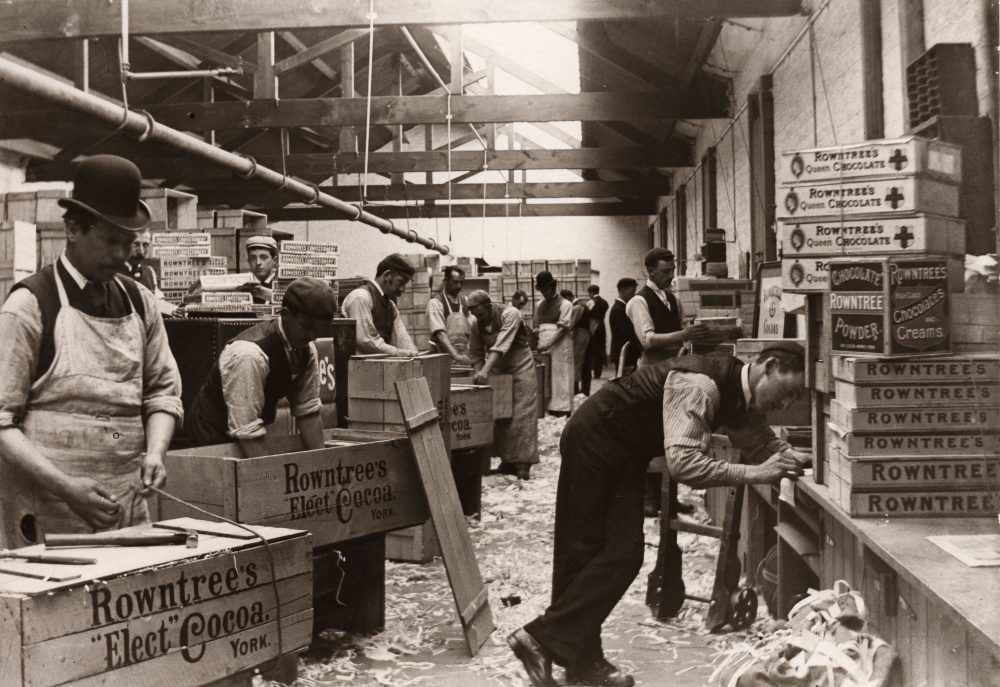Investigators have uncovered links to slavery and historic racial abuse at Rowntree chocolate factory in York.
Research into the company’s past, partly prompted by the Black Lives Matter movement, reviewed the company’s global supply chains and histories of slavery, forced labour, colonialism and racial injustice.
It was undertaken by the Rowntree Society.
After the review was published, the charities and trusts founded by Rowntree’s said they were “appalled” and “deeply sorry” for the historic injustices.
While the Rowntree Society “found no evidence that the Rowntree family owned or traded in enslaved people” it did identify five areas of concern – and called for fuller research.
Rowntree & Co, established in 1822, “sold commodities of empire which are likely to have been produced by enslaved or unfree workers,” it says.
The company also “benefited from colonial indenture, a system of bonded labour in which European imperial powers recruited people from India and Southeast Asia to work on plantations in the Caribbean and West Africa”.
Goods produced by enslaved Africans

The report considered an extensive historical period from the origins of the Rowntree company as a family-run grocery business in 1822 to the £2.5bn takeover by the Swiss corporation Nestlé in 1988.
It said: “Together with other British Quaker chocolate manufacturers, Rowntree & Co. purchased cocoa and other goods produced by enslaved Africans in the Portuguese-colonised West African islands of São Tomé and Príncipe in the early twentieth century.”
And it found evidence of historic racial abuse at Wilson Rowntree, Rowntree Mackintosh’s fully owned subsidiary in South Africa.
“In the early 1980s, Wilson Rowntree used tactics including summary dismissal and forced unemployment to suppress unrest among its black work force.
“During the period of unrest, black workers were subjected to human rights abuses by state police.”
‘We should have done this earlier’

The review was backed by the Joseph Rowntree Foundation (JRF), the Joseph Rowntree Housing Trust (JRHT), the Joseph Rowntree Charitable Trust (JRCT) and the Joseph Rowntree Reform Trust (JRRT).
Today the JRF and the JRHT issued a joint statement.
“We are deeply sorry that the origins of our endowment have roots in shameful practices that caused deep suffering and created enduring harms.
“The JRF Trustees and JRHT Board are committed to recognising and learning from every part of our history.
“It is especially important to us that the experiences of people whose labour was taken under duress and slavery should occupy a more prominent place in the Rowntree story. We should have done this much earlier.”
They are to fund further investigations by the Rowntree Society: “We know that the harms caused by these practices are still creating injustice and suffering today.
“Many of the injustices faced by black and minority ethnic people in the UK are fuelled by attitudes similar to those used during imperialism to justify the worst forms of exploitation.”
A statement from Nestle said: “This is a very important piece of work that expands the well-known history of the Rowntree’s Company and recognises the significant impact of colonialism at the turn of the 20th Century.
“Nestlé is a diverse, global company that is firmly anti-racist and has zero tolerance for slavery. We will continue to learn from the actions of our predecessors.”
Read the full report here
